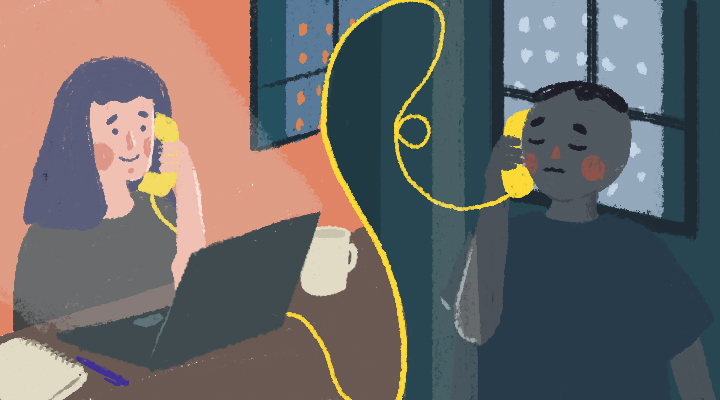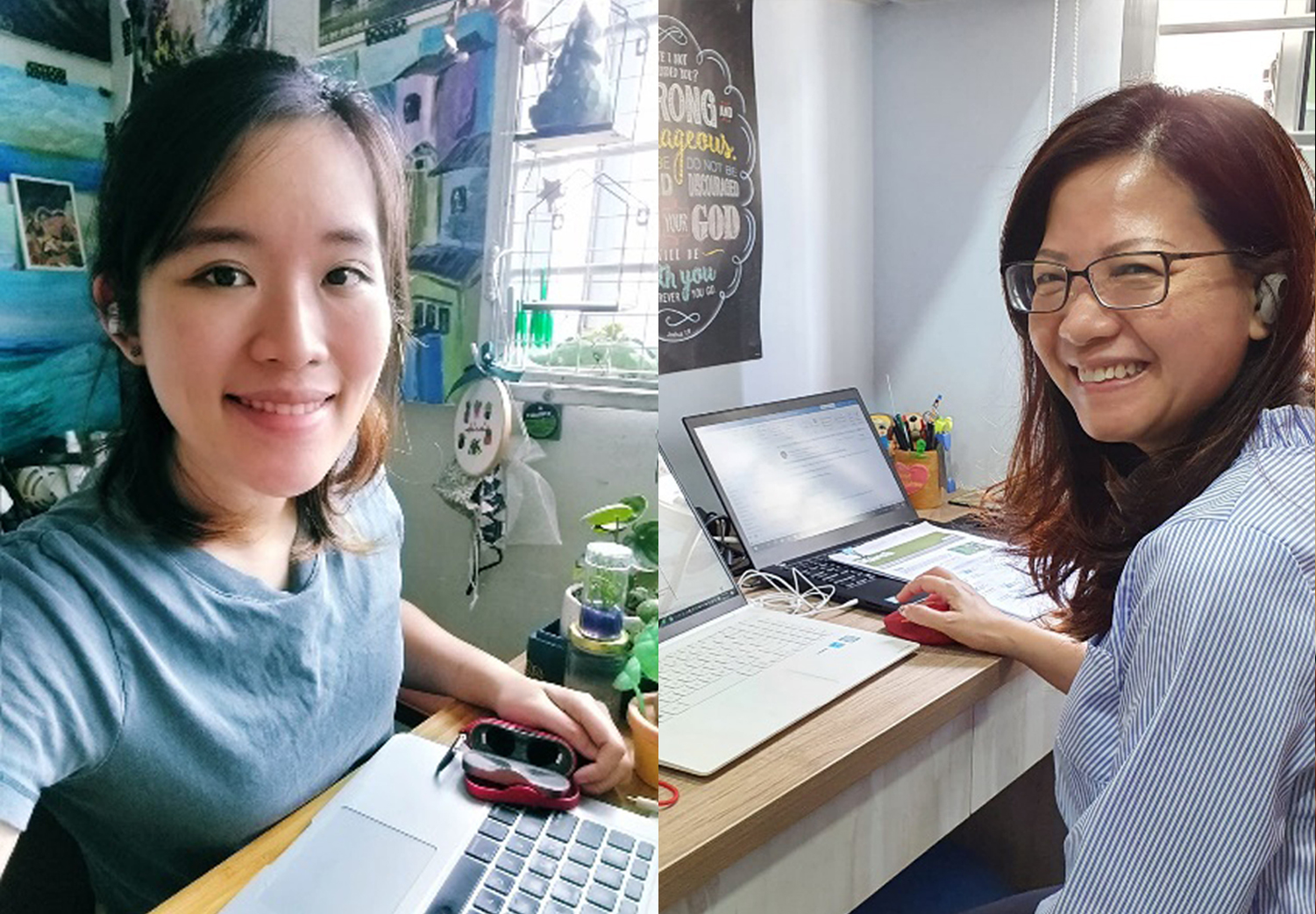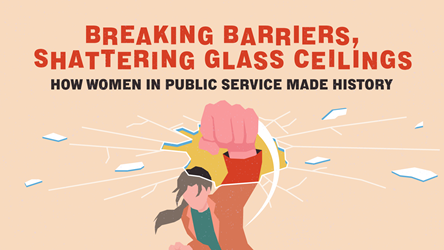A First Aid Hotline For The Psyche
Two public officers – a counsellor and a clinical psychologist – stepped up to contribute some of their professional expertise by volunteering with the National CARE Hotline during the COVID-19 circuit breaker.

During the 2020 peak of COVID-19 in Singapore, many people lost their jobs and had their plans disrupted. Flights were cancelled. Everyone had to stay in their homes for an extended period. With social isolation, boredom and, for some, the rise of family tensions, many succumbed to mental and emotional turmoil.
While many were able to sleep through the nights, several volunteers stayed awake to be listening ears to others in distress.
Meet Ms Deborah Goh and Ms Carina Teo, volunteers at the National CARE Hotline (NCH). The NCH is a 24-hour service that provides psychological first aid and emotional support to callers in need.

A Light in the Dark
During the day, Deborah is a full-time clinical psychologist working at HEART @ Fei Yue, a Child Protection Specialist Centre, on a secondment from the Ministry of Social and Family Development.
She began her volunteer journey in April 2020 when Singapore entered the circuit breaker, taking the midnight shift from 12am to 8am once or twice a month.
Carina, a school counsellor with the Ministry of Education, has also been volunteering at the hotline for a year, contributing up to 16 hours a month. When she heard of the call for volunteers from an ex-colleague, Carina signed up and has not looked back since.
About the National CARE Hotline
- Need a listening ear? Call the hotline at 1800-202-6868
- Currently, the hotline operates daily from 8am to 12am.
- The service was available 24/7 during the circuit breaker.
- As of April 2021, it had managed more than 40,000 calls.
- Find out about other resources for psychological support.
“My favourite part of volunteering is when the caller’s mood improves or when I manage to address their concerns,” she says.
While some callers simply wanted to know more about the COVID-19 situation, others needed help with personal or family crises, or reached out for emotional and practical support to manage challenges associated with their mental health, such as experiencing anxiety attacks, having delusional thoughts, feeling loneliness or having suicidal thoughts, says Deborah.
As Duty Care Officers (DCOs) with the NCH, the volunteers are trained to perform Psychological First Aid (PFA) over the phone.
This includes identifying the callers’ concerns and swiftly evaluating the level of support they require.
Deborah says: “Some callers approach the NCH feeling anxious and unable to calm down on their own. I sometimes practice grounding exercises with them, which can include using their five senses to calm down. For callers who expressed suicidal thoughts, I will carry out suicide risk assessments to decide on the next course of action.”
PFA is a different skillset from counselling, Carina explains. All volunteers took an online course in PFA, picking up skills meant primarily for face-to-face interactions, and also attended a compulsory briefing to learn how to provide PFA over the phone.
Support for One Another
The volunteers at the NCH hail from diverse fields, and all of them share the common goal of lending an ear to those in emotional distraught.
Deborah says: “The teams I volunteer with include individuals from medical and health services, social service agencies, non-profits, private practice – and even individuals who are unaffiliated with any of these agencies. Everyone has different experiences to contribute, and different relevant areas of expertise.”
For both Carina and Deborah, interacting with other like-minded DCOs and exchanging their volunteer experiences have been deeply encouraging.
The network of care for volunteers doesn’t end there. DCOs are also supported by Duty Supervisors who assist in decision-making and mobilising emergency services for callers at imminent risk of harm.
Carina’s Tips for Volunteering
- There is no “perfect” time to volunteer. A few hours is all you need. Just start.
- To be a good helper to others, you have to take care of yourself first. Carina maintains a simple exercise regime to manage her well-being.
- Know your source of motivation. Knowing she brings comfort to the lonely keeps her going.
Deborah gets her spark of motivation from callers who occasionally share good news amid the doom and gloom.
“Once, an elderly person called to tell me that he had found a new job. Another person called to share her mental health recovery journey with me. Their stories of hope bring me joy.”
For Carina, despite the late or extra hours put in, volunteering is a source of energy.
“Volunteering helps me look beyond myself. I feel more energised and uplifted when contributing to the well-being of others. A few hours a month refocuses me on what is truly meaningful in life.”
Inspired to volunteer? Find out how to be a National CARE Hotline volunteer here

To get more stories like this, subscribe to the Challenge Telegram channel.
- POSTED ON
Jun 1, 2021
- TEXT BY
Kate Ling
- PHOTOS BY
Deborah and Carina
- ILLUSTRATION BY
Syaf









